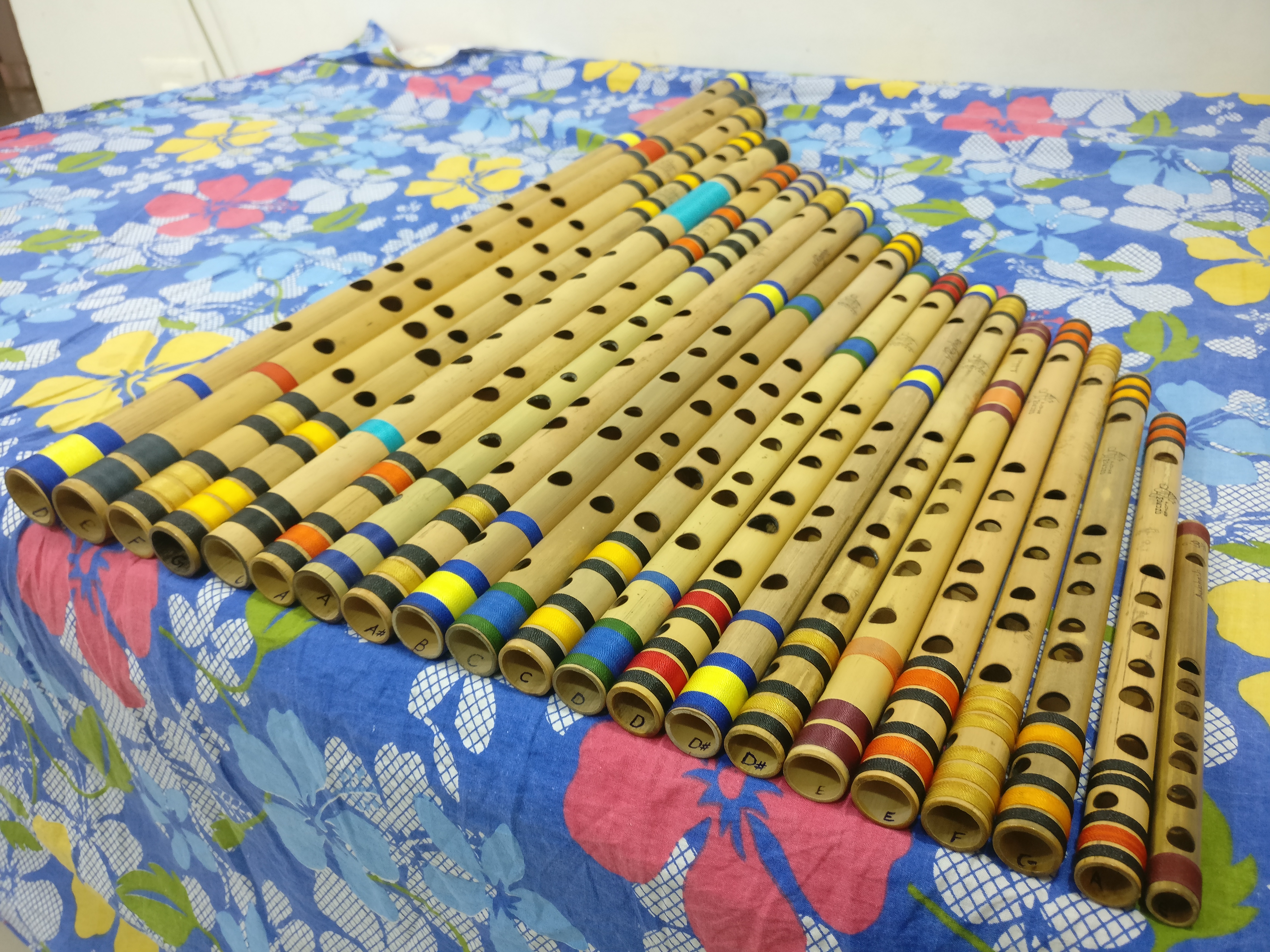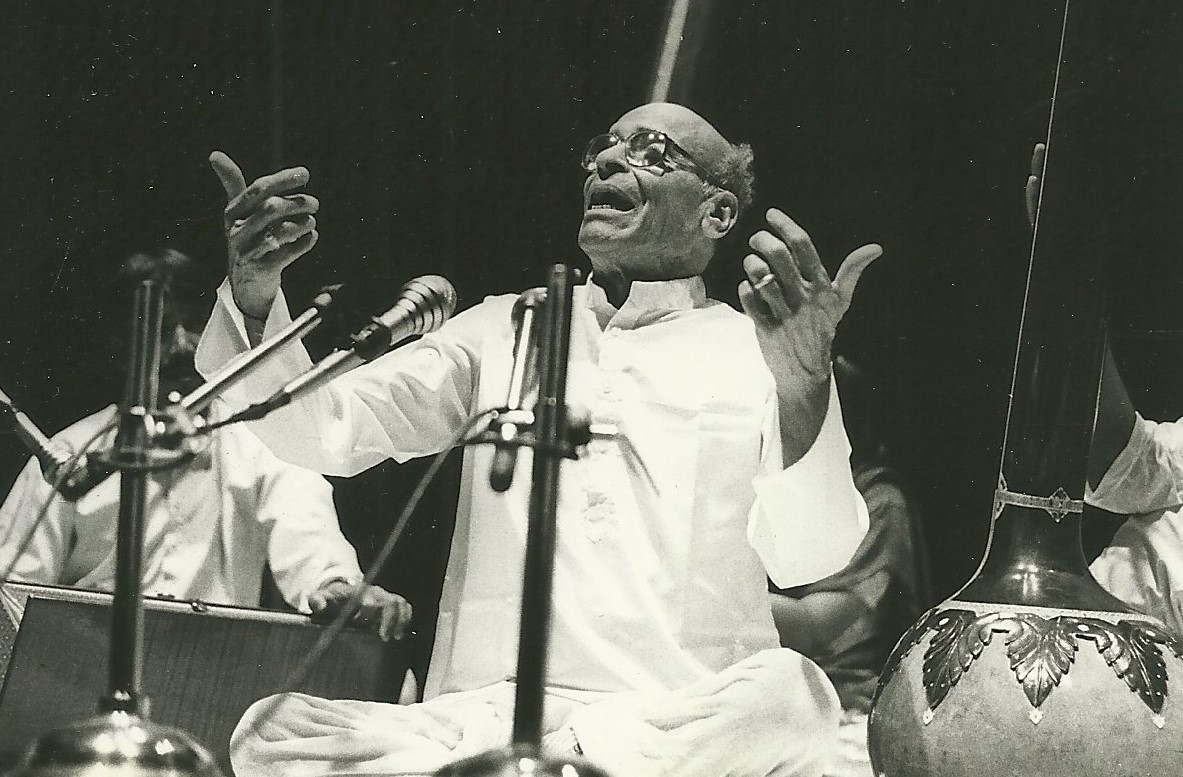|
Devendra Murdeshwar
Devendra Murdeshwar (19 September 1923 – 29 January 2000) was an Indian bansuri flutist. Early life Murdeshwar was born in 1923 in a Brahmin family in Masur in the Mysore State in Karnataka. His father played the violin, tabla and the bansuri flute as a hobby. Devendra first also learned flute and tabla before shifting to the flute. Career He had an early interest in music. In 1941 he went to Bombay to study under Pannalal Ghosh. He was a staff artist at All India Radio Delhi. Through his work he came in contact with musicians such as Allauddin Khan, Omkarnath Thakur, Mallikarjun Mansur and Bade Ghulam Ali Khan Ustad Bade Ghulam Ali Khan (2 April 1902 – 23 April 1968) was an Indian Hindustani classical vocalist, from the Patiala gharana. [...More Info...] [...Related Items...] OR: [Wikipedia] [Google] [Baidu] |
Bansuri
A bansuri is an ancient side blown flute originating from the Indian subcontinent. It is an aerophone produced from bamboo and metal like material used in Hindustani classical music. It is referred to as ''nadi'' and ''tunava'' in the ''Rigveda'' and other Vedic texts of Hinduism. Its importance and operation is discussed in the Sanskrit text ''Natya Shastra''. A ''bansuri'' is traditionally made from a single hollow shaft of bamboo with six or seven finger holes. Some modern designs come in ivory, fiberglass and various metals. The six hole instrument covers two and a half octaves of music. The ''bansuri'' is typically between and in length, and the thickness of a human thumb. One end is closed, and few centimeters from the closed end is its blow hole. Longer ''bansuris'' feature deeper tones and lower pitches. The traditional design features no mechanical keys, and the musician creates the notes they want by covering and uncovering the various finger holes. The ''ban ... [...More Info...] [...Related Items...] OR: [Wikipedia] [Google] [Baidu] |
Mysore State
Mysore State, colloquially Old Mysore, was a state within the Dominion of India and the later Republic of India from 1947 until 1956. The state was formed by renaming the Kingdom of Mysore, and Bangalore replaced Mysore as the state's capital. When Parliament passed the States Reorganisation Act in 1956, Mysore State was considerably enlarged when it became a linguistically homogeneous Kannada-speaking state within the Republic of India by incorporating territories from Andhra State, Bombay State, Coorg State, Hyderabad State, and Madras State, as well as other petty fiefdoms. It was subsequently renamed Karnataka in 1973. History The Kingdom of Mysore was one of the three largest princely states in British India. Upon India's independence from Britain in 1947, Maharaja Jayachamarajendra Wadiyar signed the instrument of accession, incorporating his realm with the Union of India, on 15 August 1947. The territories of the erstwhile princely state of Mysore were then reconstitu ... [...More Info...] [...Related Items...] OR: [Wikipedia] [Google] [Baidu] |
Tabla
A tabla, bn, তবলা, prs, طبلا, gu, તબલા, hi, तबला, kn, ತಬಲಾ, ml, തബല, mr, तबला, ne, तबला, or, ତବଲା, ps, طبله, pa, ਤਬਲਾ, ta, தபலா, te, తబలా, ur, , group="nb", name="nb" is a pair of twin hand drums from the Indian subcontinent, that are somewhat similar in shape to the bongos. Since the 18th century, it has been the principal percussion instrument in Hindustani classical music, where it may be played solo, as accompaniment with other instruments and vocals, and as a part of larger ensembles. It is frequently played in popular and folk music performances in India, Bangladesh, Afghanistan, Pakistan, Nepal and Sri Lanka.Tabla Encyclopædia Britannica The tabla is an essential instrument in the |
Pannalal Ghosh
Pandit Pannalal Ghosh ( bn, পান্নালাল ঘোষ; 24 July 1911 – 20 April 1960), also known as Amal Jyoti Ghosh, was an Indian flute ( bansuri) player and composer. He was a disciple of Allauddin Khan, and is credited with popularizing the flute as a concert instrument in Hindustani classical music and also the "Pioneer of Indian Classical Flute". Early life Pannalal Ghosh was born on 24 July 1911 in Barisal, Bengal Presidency, British India. He was named Amal Jyoti Ghosh with Pannalal having been his nickname. His father, Akshay Kumar Ghosh, was a sitarist. Ghosh received his initial training in music from his father, learning to play the sitar. Two apocryphal incidents in his childhood are believed to have influenced Ghosh in taking up the flute. As a child he had picked up a small flute that cowherds usually played, and on the basis of the education he was receiving on the sitar from his father, he would try to play musical patterns on the flute. The fam ... [...More Info...] [...Related Items...] OR: [Wikipedia] [Google] [Baidu] |
Allauddin Khan
Allauddin Khan, also known as Baba Allauddin Khan ( – 6 September 1972) was an Indian sarod player and multi-instrumentalist, composer and one of the most notable music teachers of the 20th century in Indian classical music. For a generation many of his students, across different instruments like sitar and violin, dominated Hindustani classical and became some of the most famous exponents of the form ever, including Ravi Shankar and Ali Akbar Khan. Early life Khan was born in Shibpur village in Brahmanbaria (in present-day Bangladesh). His father, Sabdar Hossain Khan, was a musician. Khan took his first music lessons from his elder brother, Fakir Aftabuddin Khan. At age ten, Khan ran away from home to join a jatra party where he was exposed to a variety of folk genres: jari, sari, baul, bhatiyali, kirtan, and panchali. Khan went to Kolkata, where he met a physician named Kedarnath, who helped him to become a disciple of Gopal Krishna Bhattacharya (also known as Nulo Gopal), ... [...More Info...] [...Related Items...] OR: [Wikipedia] [Google] [Baidu] |
Omkarnath Thakur
Pandit Omkarnath Thakur (24 June 1897 – 29 December 1967), was an Indian music teacher, musicologist and Hindustani classical singer. A disciple of classical singer Vishnu Digambar Paluskar of Gwalior gharana, he became the principal of Gandharva Mahavidyalaya, Lahore, and later went on become the first dean of the music faculty at Banaras Hindu University.He also wrote book "sangeetanjli" vol 1 to 6 Early life and training Thakur was born in 1897 in a village called Jahaj in the Princely State of Baroda (5 km from Khambhat in present-day Anand District, Gujarat, into a poor military family. His grandfather Mahashankar Thakur had fought in the Indian Rebellion of 1857 for Nanasaheb Peshwa. His father Gaurishankar Thakur was also in the military, employed by Maharani Jamnabai of Baroda, where he commanded 200 cavalrymen. Wade, p. 258 The family moved to Bharuch in 1900, though soon the family faced financial difficulties, as his father left the military to become a renuncia ... [...More Info...] [...Related Items...] OR: [Wikipedia] [Google] [Baidu] |
Mallikarjun Mansur
Pandit Mallikarjun Bheemaraayappa Mansur (Kannada: ಮಲ್ಲಿಕಾರ್ಜುನ ಮನ್ಸೂರ), (31 December 1910 – 12 September 1992) was an Indian classical singer from Karnataka, an excellent vocalist in the khyal style in the Jaipur-Atrauli gharana (singing style). Early life and background Mallikarjun was born on New Year's Eve of 1910, at Mansur, a village five kilometres west of Dharwad, Karnataka. According to his biography, he was born on an Amavasya day. His father, Bheemaraayappa, was the village headman, a farmer by occupation and an ardent lover and patron of music. He had four brothers and three sisters. His elder brother Basavaraj owned a theatre troupe, and thus at age nine Mallikarjun did a small role in a play. Spotting the talent in his son, Mallikarjun's father engaged him to a travelling Yakshagana (Kannada theatre) troupe. The owner of this troupe took a liking to the tender and melodious voice of Mallikarjun and encouraged him to sing diffe ... [...More Info...] [...Related Items...] OR: [Wikipedia] [Google] [Baidu] |
Bade Ghulam Ali Khan
Ustad Bade Ghulam Ali Khan (2 April 1902 – 23 April 1968) was an Indian Hindustani classical vocalist, from the Patiala gharana.Ustad Bade Ghulam Ali Khan India Today (newspaper), Retrieved 19 October 2020(Papri Paul Bade Ghulam Ali Khan: Remembering the legend The Times of India (newspaper), Published 4 April 2017, Retrieved 19 October 2020 Early life and background Bade Ghulam Ali Khan wa ...[...More Info...] [...Related Items...] OR: [Wikipedia] [Google] [Baidu] |
1923 Births
Nineteen or 19 may refer to: * 19 (number), the natural number following 18 and preceding 20 * one of the years 19 BC, AD 19, 1919, 2019 Films * ''19'' (film), a 2001 Japanese film * ''Nineteen'' (film), a 1987 science fiction film Music * 19 (band), a Japanese pop music duo Albums * ''19'' (Adele album), 2008 * ''19'', a 2003 album by Alsou * ''19'', a 2006 album by Evan Yo * ''19'', a 2018 album by MHD * ''19'', one half of the double album ''63/19'' by Kool A.D. * ''Number Nineteen'', a 1971 album by American jazz pianist Mal Waldron * ''XIX'' (EP), a 2019 EP by 1the9 Songs * "19" (song), a 1985 song by British musician Paul Hardcastle. * "Nineteen", a song by Bad4Good from the 1992 album '' Refugee'' * "Nineteen", a song by Karma to Burn from the 2001 album ''Almost Heathen''. * "Nineteen" (song), a 2007 song by American singer Billy Ray Cyrus. * "Nineteen", a song by Tegan and Sara from the 2007 album '' The Con''. * "XIX" (song), a 2014 song by Slipk ... [...More Info...] [...Related Items...] OR: [Wikipedia] [Google] [Baidu] |
Indian Flautists
Indian or Indians may refer to: Peoples South Asia * Indian people, people of Indian nationality, or people who have an Indian ancestor ** Non-resident Indian, a citizen of India who has temporarily emigrated to another country * South Asian ethnic groups, referring to people of the Indian subcontinent, as well as the greater South Asia region prior to the 1947 partition of India * Anglo-Indians, people with mixed Indian and British ancestry, or people of British descent born or living in the Indian subcontinent * East Indians, a Christian community in India Europe * British Indians, British people of Indian origin The Americas * Indo-Canadians, Canadian people of Indian origin * Indian Americans, American people of Indian origin * Indigenous peoples of the Americas, the pre-Columbian inhabitants of the Americas and their descendants ** Plains Indians, the common name for the Native Americans who lived on the Great Plains of North America ** Native Americans in the Uni ... [...More Info...] [...Related Items...] OR: [Wikipedia] [Google] [Baidu] |
Bansuri Players
A bansuri is an ancient side blown flute originating from the Indian subcontinent. It is an aerophone produced from bamboo and metal like material used in Hindustani classical music. It is referred to as ''nadi'' and ''tunava'' in the ''Rigveda'' and other Vedic texts of Hinduism. Its importance and operation is discussed in the Sanskrit text ''Natya Shastra''. A ''bansuri'' is traditionally made from a single hollow shaft of bamboo with six or seven finger holes. Some modern designs come in ivory, fiberglass and various metals. The six hole instrument covers two and a half octaves of music. The ''bansuri'' is typically between and in length, and the thickness of a human thumb. One end is closed, and few centimeters from the closed end is its blow hole. Longer ''bansuris'' feature deeper tones and lower pitches. The traditional design features no mechanical keys, and the musician creates the notes they want by covering and uncovering the various finger holes. The ''ban ... [...More Info...] [...Related Items...] OR: [Wikipedia] [Google] [Baidu] |





